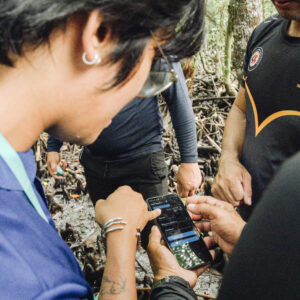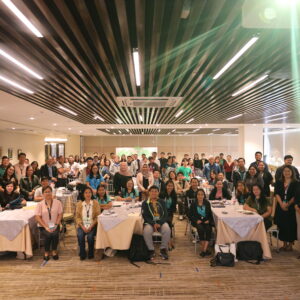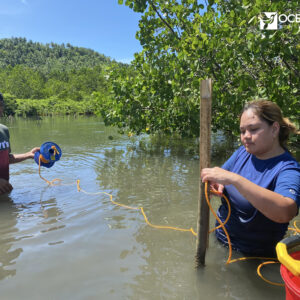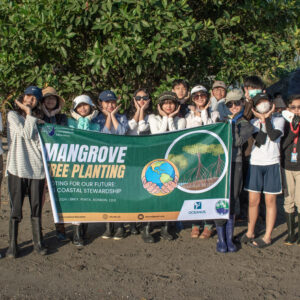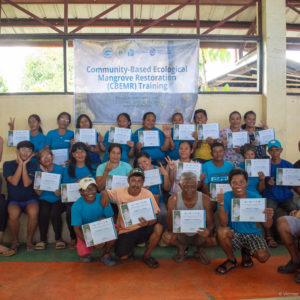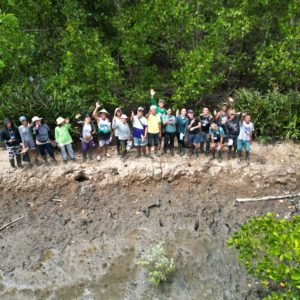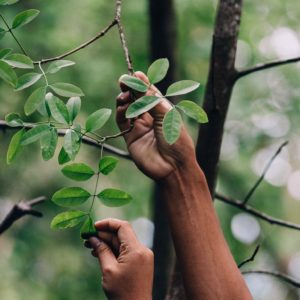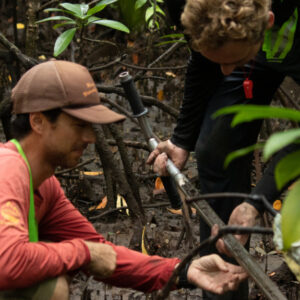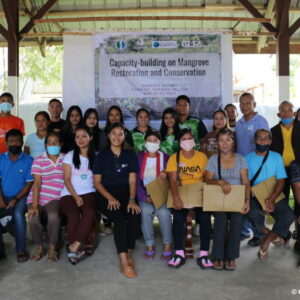We have seen the potential of AI in supporting our conservation work. Figures 1-2. Workshop participants during the Community-Based Rehabilitation and Conservation Training last December 3-4. Sources: Andreu Bayongasan, Oceanus Conservation; Dafrose Bajaro, Thinking Machines In 2022, Oceanus partnered with Thinking Machines Data Science and Gainforest to improve monitoring of mangrove forests through mobile data...
Tag: mangroverestoration
Advancing Mangrove Conservation: A Successful Workshop and Policy Roll-Out in Iloilo City
From August 19-23, 2024, the Department of Environment and Natural Resources-Biodiversity Management Bureau (DENR-BMB) hosted a week of productive training workshop on Science-Based Mangrove Rehabilitation Methods in Iloilo City. This event was held alongside the Policy Roll-Out of Department Memorandum Order No. 2024-01, which focuses on the Immediate Assessment of Abandoned, Undeveloped (Unused), and Underutilized...
Biodiversity assessment in Surigao del Sur
We conducted a biodiversity assessment at the mangrove restoration sites in Poblacion and Bitaugan West, Cagwait, Surigao del Sur. This evaluation aimed to gather baseline data on various environmental factors to gauge the success of the ongoing restoration projects. Oceanus collected data on water quality, soil samples, mangrove biodiversity, and macroinvertebrate biodiversity, ensuring a comprehensive...
Mangrove Lecture in Academy of International Education
Last April 24 and 25, the Academy of International Education hosted a learning session in partnership with Oceanus Conservation and City Environment and Natural Resources Office (CENRO), focusing on mangrove ecosystems. Fifty students from grades seven to ten and the faculty attended the lecture on the first day, where Oceanus taught them about mangrove biology,...
Community-Based Ecological Mangrove Restoration (CBEMR) training in Cagwait, Surigao del Sur
Our Blue Carbon Program focuses on the restoration and protection of blue carbon habitats such as seagrass and mangrove habitats. The 2nd phase of this program is to conduct trainings for our partner communities to equip them with the knowledge and skills for mangrove restoration and monitoring. With this, our team recently partnered with the...
Mangrove Restoration: A Community Effort in Kabasalan
Mangrove forests act as nature’s guardians, filtering water, providing vital habitat for marine life and livelihood for local coastal communities, and even protecting shorelines from erosion and storms. Unfortunately, these vital ecosystems have faced threats such as coastal development, cutting, and conversion to aquaculture ponds. This is where our Blue Carbon Program steps in. Focused...
Restoring abandoned fishponds in Cagwait, Surigao del Sur
Mangroves are a salt-tolerant plant that occurs within the coastal belt. They are among the most productive ecosystems on earth. It is known for its numerous ecosystem services critical to environmental health and human well-being. Mangroves have great potential to lessen the adverse effects of climate change and mitigate the harm natural coastal hazards cause to...
We were featured in Grid Magazine!
Just in time for Wetlands Day this February 2, 2024, Grid Magazine featured Oceanus Conservation and our continuous efforts to showcase the beauty of mangrove ecosystems across the Philippines! Blue carbon restoration also encompasses other coastal wetlands that store carbon such as seagrasses and tidal marshes. Despite the importance of mangroves in the Philippines and...
Blue Carbon Ecosystems:Climatological and Socio-economic Impacts of Mangrove Restoration in Cagwait, Surigao del Sur, Philippines
Mangroves for climate mitigation Mangroves are part of the blue carbon ecosystems (BCE). These are highly productive coastal ecosystems that can store large amounts of carbon in the atmosphere. In this case, mangroves store and sequester substantial amounts of carbon in their aboveground biomass (bark, leaves, branches) and belowground biomass (soil sediment) accumulated. Certainly, mangrove blue carbon ecosystems...
Capacity-Building Training on Mangrove Rehabilitation, Restoration, and Conservation in Cagwait, Surigao del Sur
Mangroves in the Philippines We have the common knowledge that whenever we encounter a plant or tree species, we always end up with one conclusion. They absorb carbon dioxide and give off oxygen. Conversely, they are called autotrophs. They are organisms that can make their food. And in the process, they support humans and other living things...
